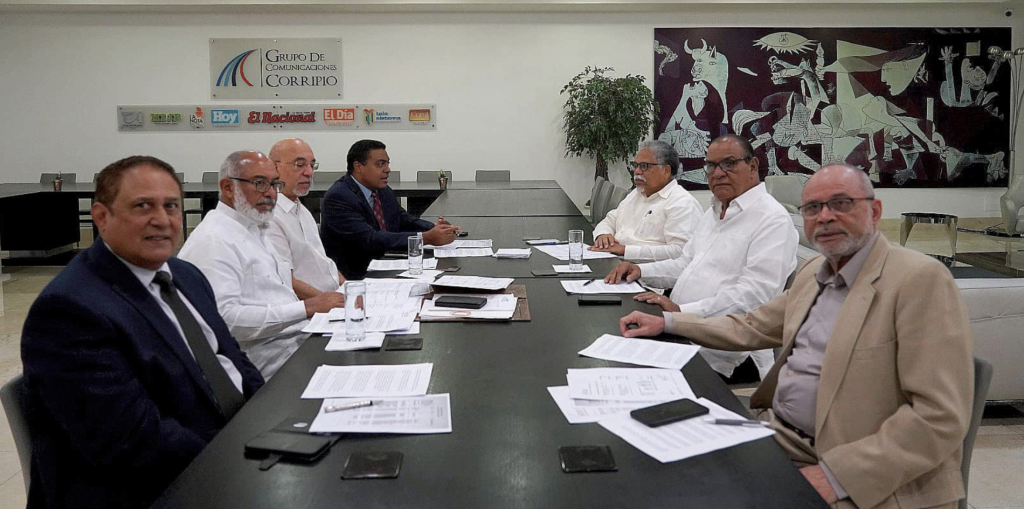
The Dominican Association of Newspapers (SDD) urges the passing of the recently introduced bill aimed at protecting freedom of expression and audiovisual media in the country. In a public statement, the SDD praised the bill’s inclusion of key principles such as freedom of expression without prior censorship, universal access to the internet, and equitable use of media space.
The Dominican Association of Newspapers (SDD) expressed strong support for the proposed Organic Law on Freedom of Expression and Audiovisual Media, submitted by the Executive Branch to the National Congress on 2 May 2025. The association stated that passing this law before the Inter-American Press Association’s General Assembly in October in Santo Domingo would demonstrate the country’s commitment to freedom of expression and democratic values.
The organization also applauded provisions for network neutrality, respect for public criticism, and protection for journalists through measures like professional secrecy, the right to conscience, and the right to rectification.
“This bill is the result of an extensive process of consultation, technical reflection, and agreement among diverse sectors of civil society, academia, legal experts, journalists, and media representatives,” the SDD stated. The SDD emphasizes that the proposal had been over two years in the making, aiming to modernize existing legislation from 1962 while safeguarding fundamental rights and addressing contemporary digital challenges.
The SDD commended the executive branch for submitting the bill to Congress, highlighting it as a recognition of the media’s crucial role in democracy. They expressed optimism that legislative debate will further strengthen the bill without compromising its core principles or delaying its passage.
The bill proposes the National Communication Institute, which would have the authority to penalize journalists or media outlets that commit various infractions. This new entity would replace the National Commission of Public Spectacles and Radio Broadcasting.
If passed by the National Congress, the bill would make it a serious offense to restrict freedom of expression, the independence of the media, or the right to access information through acts contrary to the Constitution, say its promoters. Additionally, it would be illegal to broadcast radio and television signals or content that has been suspended or canceled under the terms of this law. Refusal to provide information to authorities during emergencies would also be penalized.
Offenders could face suspension of their broadcast license for up to 90 days, removal of violating content, or fines ranging from 30 to 200 times the public sector minimum salary. Lesser offenses, such as refusing to supply information to the Communications Institute or violating the right to reply, would result in penalties including broadcast suspensions of up to 30 days and fines from 10 to 30 times the public sector minimum salary.
The legislative document also outlines “minor” infractions, such as ignoring the Communication Institute’s recommendations or violating other provisions of the law, which would incur warnings and fines from 2 to 10 times the public sector minimum salary.
The government argues that an update to the legal framework is necessary because the existing law on freedom of expression (Law 6132) dates back to December 1962, “a time with a social and technological context that has since been surpassed.”
The bill proposes that online content platforms operating in the Dominican Republic, such as Instagram, YouTube, X, and others, would be required to meet “active transparency” obligations under the proposed bill. These include providing clear explanations in Spanish to users about why their content has been restricted, limited, or removed, or why their account has been suspended, blocked, or deleted. Platforms must also offer a simple appeals process with short response times, be transparent about their algorithms and source code, and allow for audits.
Furthermore, they would need to provide semi-annual, specific, and disaggregated information on all content or account restrictions, including those made at the request of the government, judicial orders, private entities, or in accordance with community standards.
Furthermore, the bill establishes that the de-indexing of online content would only proceed when the requester proves substantial harm to their privacy or dignity and only through a court order issued after due process, allowing all involved parties to mount a defense. De-indexing would not be permitted if it limits the circulation of information in the public interest or relates to public figures, candidates, or human rights violations.
Somos Pueblo online platform feels the law has provisions that will impact freedom of press.
The Senate sent the bill to committee for studying and announced public hearings would be held to give widespread participation to the general public to address issues included or excluded from the submitted bill.
Read more in Spanish:
Listin Diario
Diario Libre
Noticias SIN
El Nuevo Diario
Hoy
Somos Pueblo
Esta Noche con Mariasela
7 May 2025

